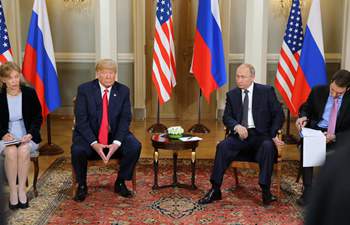CHICAGO, July 18 (Xinhua) -- The negative effects of email incivility extend beyond the recipient's work and family domains and can even play a role in their partners' withdrawal from their own work, a study of the University of Illinois (UI) shows.
UI researchers collected survey data from 167 dual-earner couples at multiple points in time during a typical work week: before leaving work for the weekend, the following Monday morning and at the end of the next new week. Results show that when employees experience more frequent incivility via work email during the week, they tend to withdraw from work the following week.
"This is a typical stress reaction: When you are under great stress, you tend to avoid your work as a means of conserving your energy and resources and staying away from stressors. It's self-preservation," said YoungAh Park, a professor of labor and employment relations at UI.
The researchers also found that when employees receive more uncivil emails during the work week, on the weekend, "they 'transmit' their stress to their domestic partner and, as a result, the partner also withdraws from their work the following week," Park said.
"What's really stressful about email incivility is that, unlike face-to-face interactions, emails don't have any social cues like tone of voice or body gestures that help recipients understand the context accurately," Park said. "Nuance is lost in email - it could be blunt, it could merely be banal, it could be neutral. You just don't know, and because of the ambiguity of the sender's intentions, the recipients may ruminate more about it because they don't know how to respond to it. That's why it's so distressing."
When workers ruminate about negative work incidents over the weekend, they are more likely to take their stress out on family members, including their spouse, because the rumination replays the stressors and renews their effects.
"This is one of the emerging workplace stressors that needs attention from top to bottom of an organization," Park said. "Email is so ingrained in our work life now that it would be impossible to completely do away with it. So we can't remove the stressor, but we should find a way to reduce it."
People tend to outsource all of their work communication to email because it's easy, but old fashioned in-person, face-to-face communication is better "when you're communicating negative feedback," Park said.
The study has been published in the Journal of Organizational Behavior.













